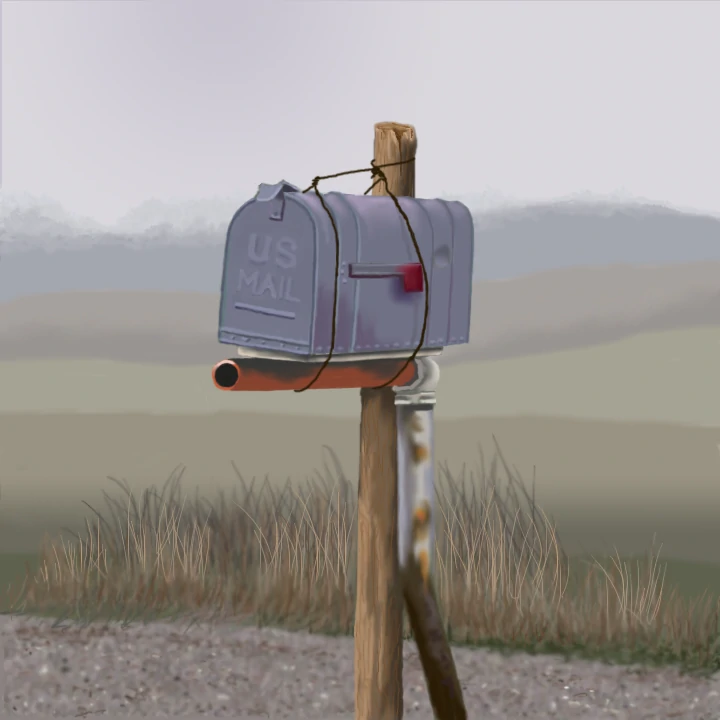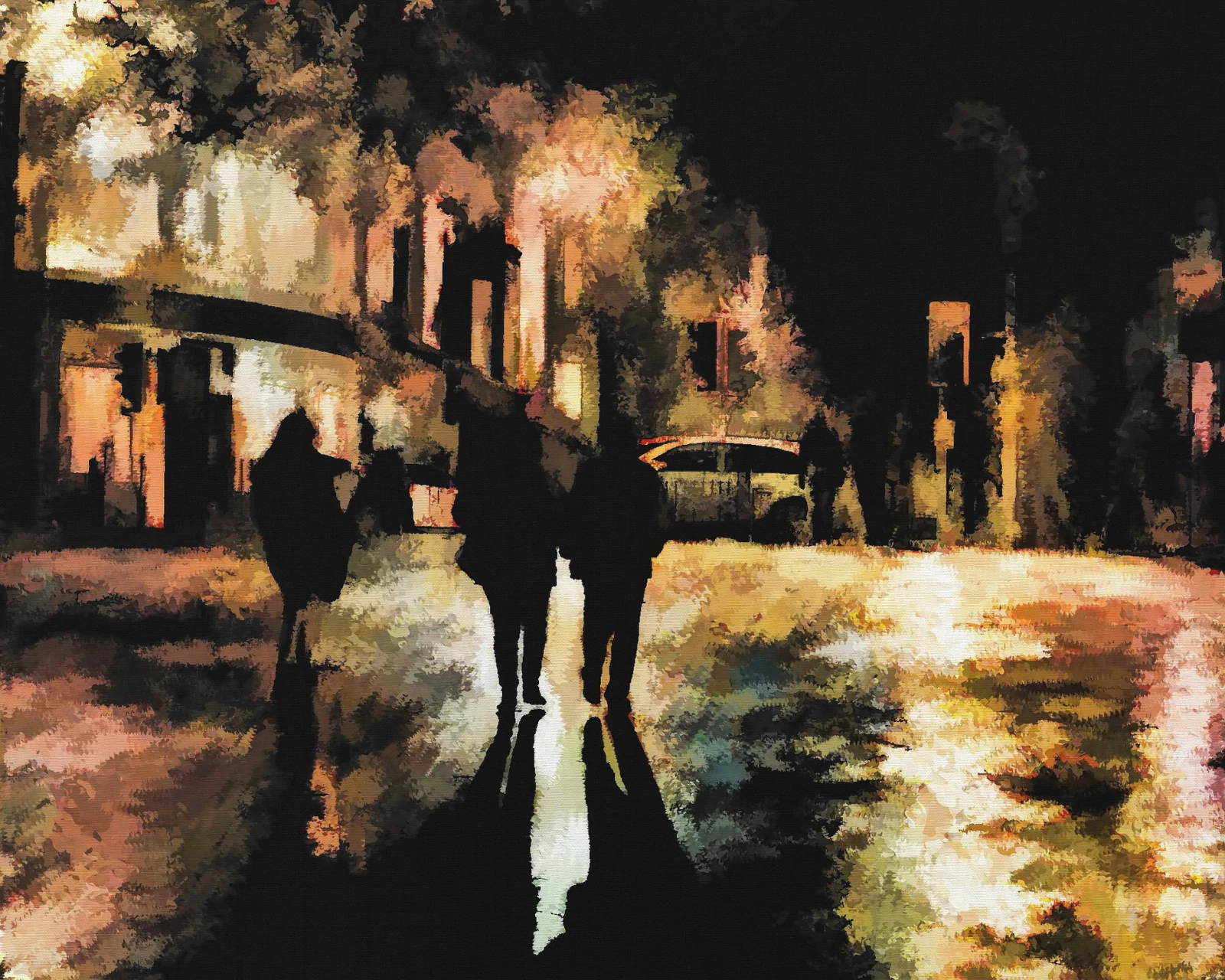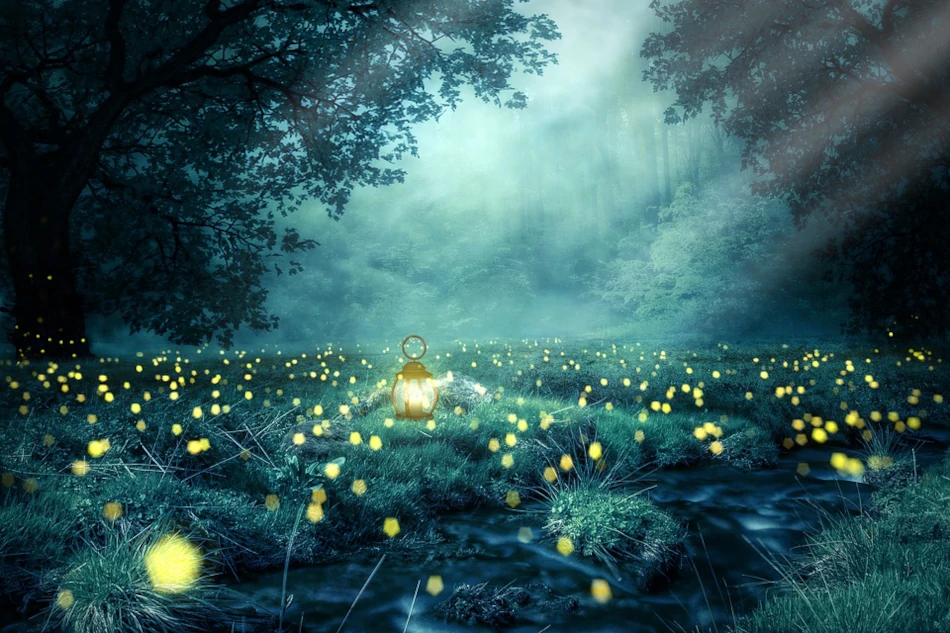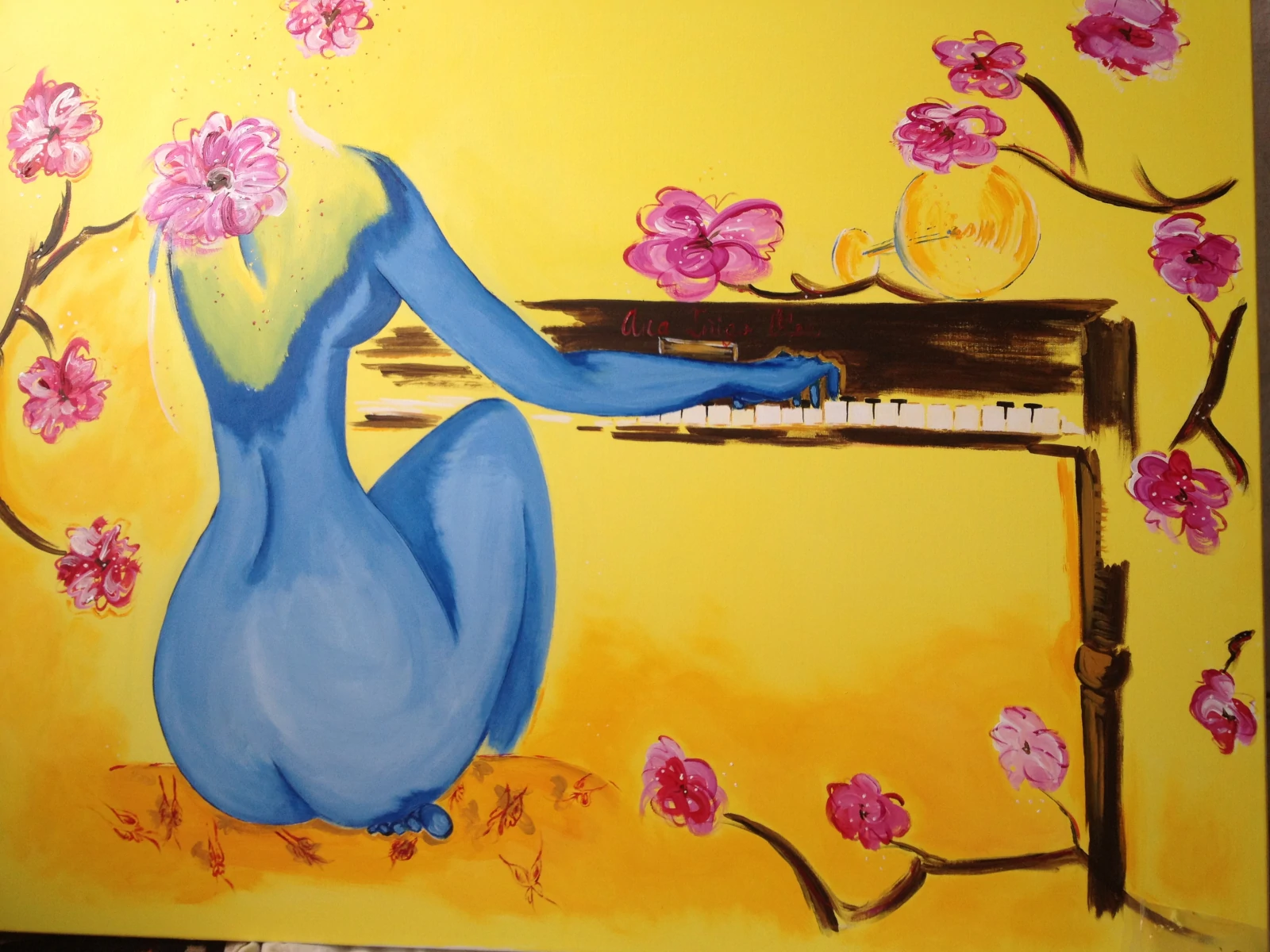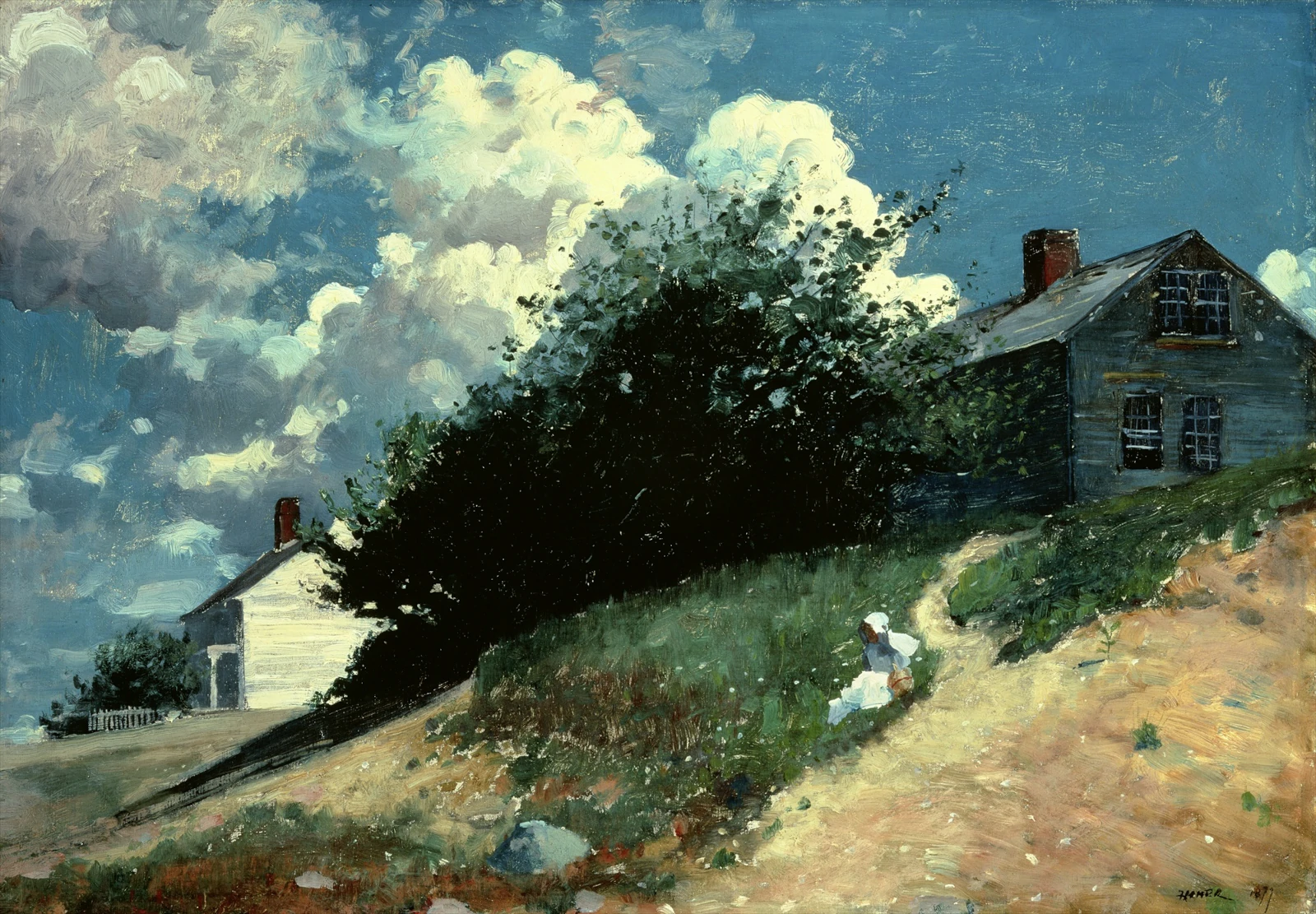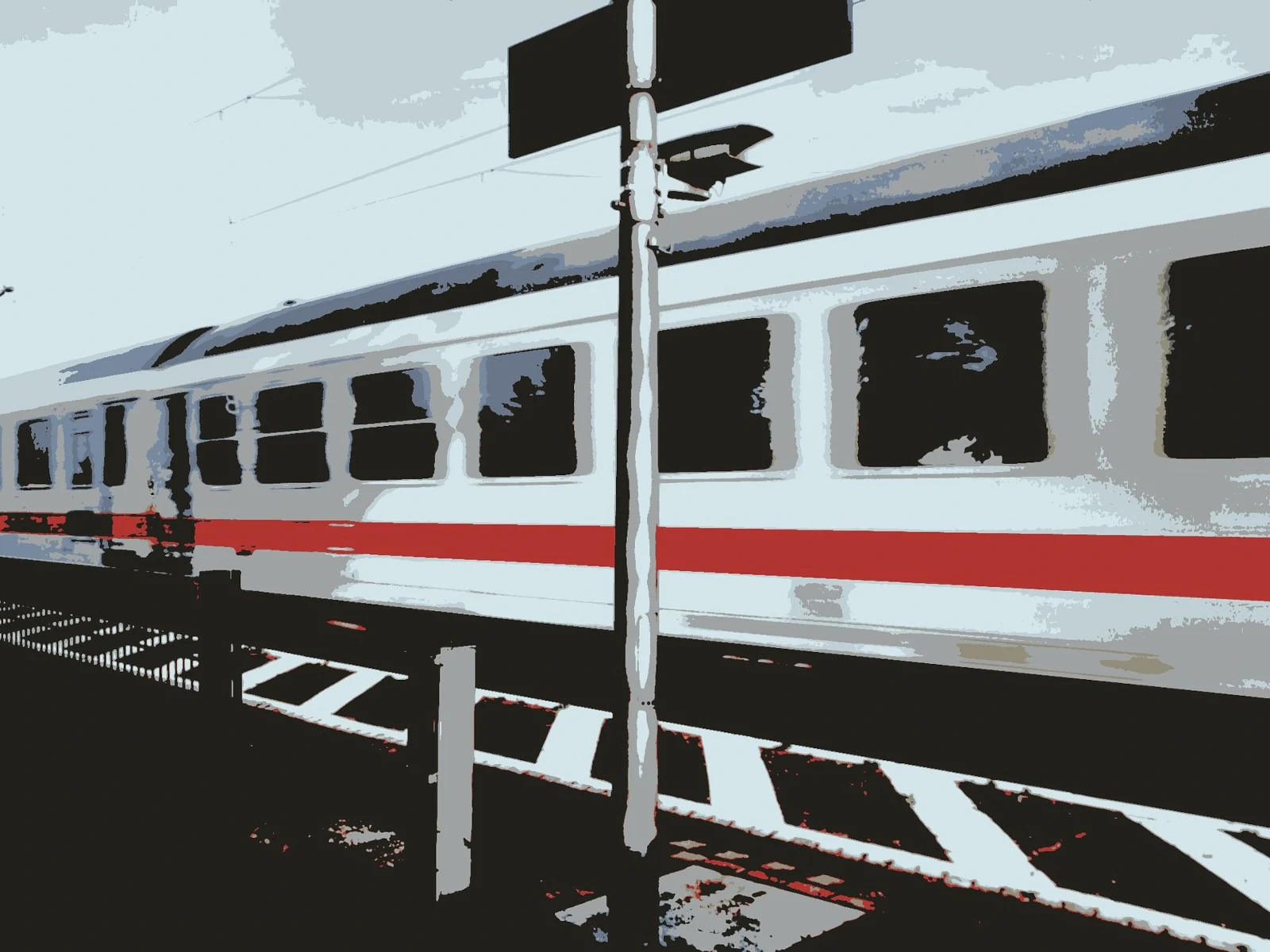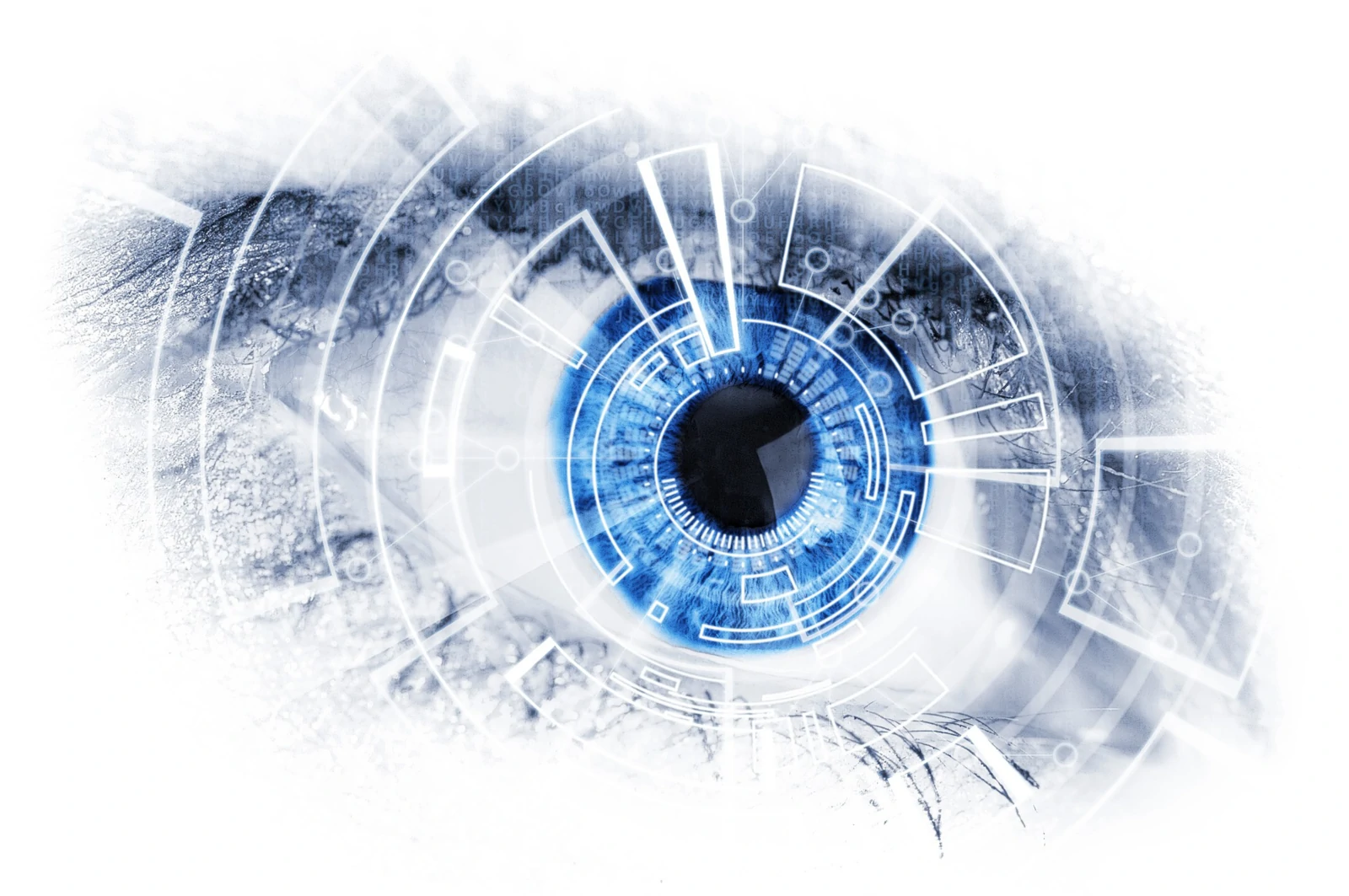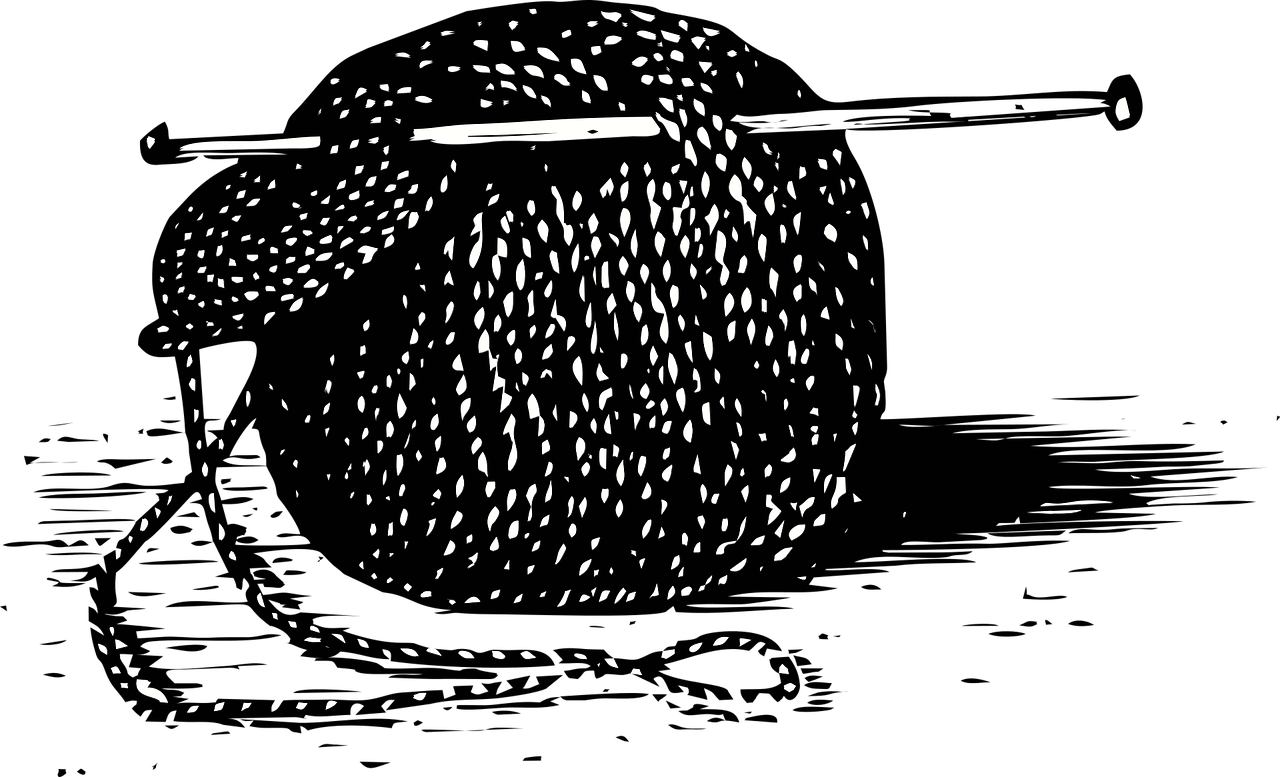When Thomas first met Tommy he didn’t immediately recognise himself: Tommy was the spitting image of Thomas at age nine. But at forty-five, Thomas had largely forgotten what his little mug looked like all those years ago. So it was that the adult and the young boy stood staring at each other for a while.
Disbelief was quickly followed by indignation, then anger. Had they still been alive, he’d sue them. But both his parents had died just one week ago; which was the reason why he had found himself in a solicitor’s office, back in that vapid village he had always detested so much.
‘Strawberry or orange?’
The solicitor offered Thomas two thin sticks that looked like lollipops. Thomas chose the strawberry one and put it in his mouth. After sucking on it for ten seconds he handed it back to the woman. She switched on a rectangular device the size of a pencil box and clicked the ersatz lollipop in its place. A minute later the DNA reader confirmed Thomas’s identity, while his personal data flashed onto a screen on the woman’s desk.
‘Right then,’ she said, then fell silent again. She quickly read through the information, her thin lips moving with the words in a quiet murmur.
‘It says here you’re single. Is that still up-to-date?’
‘Correct,’ Thomas said.
‘No Level One relationship?’
‘No. I recently invested in a sexbot. That’s all.’
‘Can it diversify?’
‘Afraid not. Couldn’t afford those.’
With one finger the woman tapped the screen in swift, light movements. She then returned her attention to Thomas.
‘I’ll be brief,’ she said and straightened herself. ‘Your parents have made it conditional that, were you to accept the inheritance, you must agree to look after Tommy for ten consecutive years. You have of course the right to decline.’
Thomas had to contain himself. Twenty-eight years had passed since he had left his parents and that backwater of theirs. And all that time they hadn’t found anything better to do than having a clone of him created without his knowledge! What on earth had they been thinking?
‘Is this legal? I mean, how about copyright? I never consented to any of this!’
The solicitor sighed and steepled her manicured fingers. Thomas felt all she was interested in was to enforce a solution for Tommy. But he found the idea of caring for a child-replica of himself rather creepy.
‘A potential breach of copyright doesn’t necessarily nullify the terms of the inheritance. The government takes a pragmatic approach on such matters. Once a copy has been made, it cannot simply be undone.’
‘Well, obviously not.’
He desperately needed the money. The news of his parents’ death had come out of the blue. Thomas’s last memory of his father was that of a pettish, dull man who had never made it past deputy-chief of the local drone mail service and who was prone to bursts of shouting. All the while, his mother’s strategy for keeping peace in the house consisted of nothing but a blind obsession about appearances and proper family life. How unjust then, that it had to be people like them who should hit the jackpot. Thirteen years of playing the same lottery numbers every Monday, the solicitor had said. Luckily they hadn’t blown their entire fortune. Thomas speculated they simply had lacked the imagination for it.
He, on the other hand, had never been in short supply of imagination. Ever since he had entered his early teens, he had begun to suspect he was an adopted child. How else could it be explained? That violent need inside him to prove his mettle: it felt as if every single gene of his being was custom-made to oppose the unbearably banal world of his parents. Back then, Thomas had not been able to corroborate his adoption theory. But before he had reached young adulthood, the idea had lodged itself into his mind like a mollusc on an underwater reef where reality and reason hardly ever ventured.
So when he had run off at seventeen, Thomas had vowed to shed his fraudulent past. Game over.
Thomas noticed how the solicitor became restive. She seemed eager to settle the matter.
‘Will any of the money go to Tommy when he reaches the age of consent?’ he asked.
‘I’m not sure I’m with you on this, Mr. Deutsch,’ the solicitor responded with raised eyebrows. ‘In the unlikely event that anything would be bequeathed to Tommy, then, of course, it would pass onto his owner.’
It was Thomas’s turn to raise his eyebrows. ‘His owner? Well, looking at it in purely DNA terms, I guess that’s how you could call me, yes.’
The solicitor now leaned back into her swivel chair. A bemused smile shaped her lips. ‘Mr. Deutsch…’
‘Please call me Thomas.’
‘Very well. Thomas,’ she said. ‘Tommy is not a clone. He’s a bot. A Schlesinger, fifth generation.’
Thomas had been quick to sign. A simple bot. What was the big deal? There had been some small print about a bot treatment policy he’d have to adhere to, and an annual evaluation interview and some other nonsense. All fine to him if it meant he could cash in on the inheritance.
Thomas’s career as a 3D printing artist had been stalled for the past two decades into a situation where to make ends meet became tougher by the year. His increasingly abstract creations had never managed to strike a chord with the public at large. It was the price Thomas had to pay for his pigheaded pursuit of an almost mythical purity in the arts. But now, with a generous injection of money, he reckoned he might be able to buy his way into that insular world of 3D printing where anything that could not be worn or sold got commonly dismissed.
So it was that Thomas returned home an official parent of a childbot. One thing he found puzzling was why his parents had wanted him to look after the thing in the first place. Had they deemed the investment too big to write off in their lifetimes? At last, something about them that intrigued him. Typical, he thought, that they must achieve this only after their death.
Within days, Thomas’s delight for his perceived stroke of luck dissipated like gun smoke. He discovered that Tommy was equipped with a transmitter that signalled the little boy’s mood levels directly to the manufacturer’s database. If they fell below a certain value, a report was sent to the solicitor, who had the power to suspend the inheritance payments; they were remitted incrementally and conditional on Tommy’s mood reaching that value. Thomas cursed aloud. He should have read the small print properly.
Before long Thomas began thinking of his childbot as a bratbot. No wonder these Schlesingers were so expensive, he mused; they had been conceived with literally everything in mind, from irrational tantrums to bedwetting and all sorts of nasty accidents. Tommy could even fall ill and self-activate a fully recyclable vomit vessel. Why, for God’s sake, would any self-respecting person invest his money in that?
‘Where’re we going, daddy?’ Tommy asked.
‘I told you before, don’t call me daddy. Call me Thomas, all right?’
‘But why, daddy?’
‘Because I say so.’
‘Why do you say so, daddy?’
‘Stop nagging, okay?’
‘Where’re we going, daddy?’
Thomas sighed. He thought of the monthly payments. Three more instalments and he’d be able to afford himself a new app for Wendy, his sexbot. He knew exactly what he wanted.
‘We’re going to see Uncle Bob, okay? Now shut up.’
Half an hour later Thomas and Tommy found themselves seated in a fast food restaurant.
‘That him?’ the man opposite them asked. He was chomping a synthetic meat burger.
Thomas nodded.
‘Hi, Uncle Bob!’ Tommy said.
‘That’s a Schlesinger, man,’ the hacker said. ‘Fifth generation.’
‘Hi, Uncle Bob!’ Tommy repeated.
‘I know, but can you break into it?’ Thomas asked.
‘Without the manufacturer finding out?’
‘Hi, Uncle Bob!’
‘Well, yes, obviously,’ Thomas replied.
‘Hi, Uncle Bob!’
‘I’d have to get into their databases and work from there. How much can you afford?’
‘Whatever you had in mind.’
The hacker seemed to think this over.
‘Hi, Uncle Bob!’
‘Oh, for Christ sake, say something to him.’
‘Hi, you little shit,’ the man said to Tommy. Then he turned back to Thomas. ‘All right, we’ve got a deal.’
On their way home Thomas was all smiles. Soon, he mused, his financial troubles would be over. But when he opened the door to his house an unpleasant surprise awaited him. A bulky package had been delivered to his attention.
‘Eve’s Apple Industries,’ he read aloud from the label.
The partnerbot! It had completely slipped his mind. That had been another condition of the inheritance agreement. In the event Thomas were not to find himself in a matrimonial or civil partnership at the time of Tommy’s adoption, a partnerbot would have to be leased for the duration of Tommy’s presence. The solicitor had even mentioned she’d order one on his behalf, but in the euphoria of his financial windfall Thomas had brushed it aside as irrelevant.
He inspected the kit with apprehension. If this one too came with a transmitter, his problem would only increase. Thomas cursed between his teeth. He must give it to them, he thought. Even when dead they still got their way; his parents had always wanted him to be married. Not that he hadn’t been open to the idea – but with a financial straightjacket like his, he had no access to those women of quality he hankered for. His last partner of five years ago, Dai-tai, had left him with the accusation that he made her feel inadequate. Yet, all he did was to strive for perfection. If people couldn’t live with that, then that was their problem.
Thomas turned to Tommy who stood beside him, quietly humming to himself.
‘Shall we unpack mummy then?’ he tried in his friendliest voice, fully aware of Tommy’s mood receptors.
‘Yeaaaah!’
An hour later, Cecilia was assembled and activated.
‘Hello, mummy!’ Tommy said.
‘Hello, child,’ Cecilia responded. ‘Hello, partner,’ she added and smiled at Thomas. ‘Please tell me your names and how you would like me to address you.’
Fortunately, Cecilia turned out to be a skilled cook. For the first time in many years, Thomas looked forward to his dinners. Recently, Cecilia had even dished up his favourite grub from childhood. Coincidence? Later he would find out that Tommy had talked to her. Only then did Thomas realise that Tommy must have stored information about him picked up from his parents.
Although Tommy was several generations older than Cecilia, Thomas soon found out the little bot was the more sophisticated of the two. For example, Tommy had food and liquid reservoirs and a complex system of internal canals that mimicked the human digestion system. So at mealtimes it would be just Thomas and Tommy crunching away while Cecilia would invariably invoke the excuse that she had to watch her figure. It suited Thomas just fine as it allowed him to save on provisions.
As far as looks were concerned, Cecilia was neither pretty nor ugly. She was just plain. Wendy, Thomas’s sexbot, was an older model compared to brand new Cecilia, yet he always turned to her whenever he needed to satisfy his carnal desires. Under the terms of the agreement he was allowed to keep Wendy as long as she didn’t come into contact with either Cecilia or Tommy. So Thomas kept her hidden in the second bedroom behind locked doors. Not that he minded it very much, as he wouldn’t want Wendy to pass on a virus to Cecilia, especially since she was equipped with a lesbian app. Still, at times it made him feel as if he were some kind of twenty-second century Bluebeard. Therefore Thomas would let Wendy wander around the house whenever both Cecilia and Tommy were out. Occasionally they might even have a romp in the kitchen.
After two weeks without news from the hacker, Thomas called him again. This time the man sounded much less confident.
‘I’ve got into some of his secondary systems but not the motherware. We’re talking about one of the country’s largest bot manufacturers. Security is top notch.’
But when the hacker began demanding advance payments, Thomas knew he wasn’t making much progress, if any. He eventually conceded to reimburse him for his efforts and then never heard of him again.
That same day the solicitor called him.
‘It’s just a friendly reminder,’ Thomas heard her speak in a tone that didn’t sound friendly at all. According to the terms of the agreement, she explained, he had severely under-performed.
‘Should your performance remain below standard, I shall be legally obliged to suspend the monthly payments.’
‘It’s all very new to me,’ Thomas defended himself, but even to him it didn’t sound convincing. ‘Could you give me some pointers?’ he asked. He hoped his question would make him appear of good faith.
‘According to the Schlesinger analysis sheets, you’re low on communication and very low on affection. You also seem to burden Tommy with a lot of menial tasks.’
‘Just the regular stuff any parent would expect from his children.’
‘Clearing out your septic tank by hand?’
‘He’s got the perfect size for it.’
‘There are professionals for that with proper equipment.’
‘They’re not exactly cheap.’
‘Mr. Deutsch, with your monthly inheritance stipend, that is hardly an excuse. I shall be expecting progress or else the agreement will have to be annulled.’
After the call Thomas sank into his easy chair. This whole thing wasn’t going according to plan. On top of everything, Wendy had to be brought in for servicing and he hadn’t had a chance yet to smuggle her out of the flat. He was so desperate he seriously contemplated trying sex with Cecilia.
‘Daddy, I want to play football with you in the park!’
Tommy had sneaked up on him and the childish voice made him jump. His immediate reaction was to tell Tommy to bugger off but luckily he managed to contain himself. An inappropriate outburst would downgrade his performance level even more. Thomas decided some outdoor air would probably do him good, and kicking a ball around the park might keep that testosterone in check.
The fair weather had tempted many people to come out and the park was buzzing with energy. After ten minutes chasing a ball, Thomas started wheezing. He should be more active more often, he realised. Despite himself his thoughts drifted to the moments he’d been playing football with his own father. Those memories now felt from another era, and ever since then, Thomas had spared no effort trying to erase them from his mind.
The ball rolled his way and he gave it an angry kick, sending it flying right through the makeshift goal posts.
‘Time’s up, we’re going home,’ he announced and made ready to leave.
Reluctantly, Tommy went off to fetch the ball and then silently followed Thomas out of the park. After a while, he said, ‘Dad always let me win.’
‘I told you many times, stop calling me dad.’
‘No, you’re not dad. You’re daddy. Dad has gone. So has mum. I miss dad. He told me I could become a great footballer.’
Thomas ignored him but couldn’t help himself veering back to his own childhood. His dad had told him too he could become great at football. In fact, he had told him he could become great at anything. If he had been so keen then why had he never achieved anything himself, Thomas thought. It only showed to him how much bull the old man had been selling. No bloody sense of reality.
‘Just like dad himself used to be,’ Tommy continued.
Thomas glanced at him.
‘Huh? Used to be what?’ Then he shrugged and mumbled, ‘What does it matter anyway…’
‘A great footballer. Dad used to be famous.’
‘Huh? Famous? Him? In that shithole of a village of his maybe.’
‘Dad used to be on national TV. Until the accident happened.’
‘Him on TV? Accident?’
Thomas dug into his memory but none of this came up. How come he didn’t know anything about it, he wondered.
When they arrived back home Cecilia greeted them from within the kitchen. She was busy cutting vegetables.
‘Hello, sex machine! Hello, Tommy!’
‘Hi, mummy!’
Thomas ignored her. When he had first activated Cecilia he had programmed her to call him sex machine, more out of an attempt at sarcasm than anything else, but now it just sounded silly and he was bored of it. He should change it.
‘What’s for dinner?’
‘Fresh vegetable soup and synthetic salmon with wholemeal rice and modified broccoli.’
‘Mummy, I don’t like fish!’ Tommy moaned.
‘It’s healthy, my sweetheart. It’s yummy and good for those little brain cells of yours.’
‘Jeez, you just sound like my mother,’ Thomas said.
‘It’s healthy for you too, sex machine.’
‘Stop calling me sex machine.’
‘Yes, partner.’
‘And don’t call me partner either.’
‘Yes, aardvark.’
‘What?’
‘Yes, aardvark.’
‘Why on earth are you calling me aardvark?’
‘You instructed me to stop calling you sex machine and partner, aardvark.’
Thomas realised Cecilia must be going through all of the words in her internal dictionary by default, starting from the beginning. Not very sophisticated, this Cecilia, but then, she’s not a Schlesinger.
‘All right, call me…,’ he hesitated.
What the hell, why not?
‘Call me honey.’
‘Yes, honey.’
Towards the end of that first year, Thomas reached a crossroads. On the one hand, he felt there were a few influential art critics who started to notice him. Even if that was mainly thanks to the lavish lifestyle the monthly payments allowed him to live, he didn’t care any longer. One or two endorsements could still elevate him into belated fame. On the other hand, nine more years of cohabiting with a child- and partnerbot was not something to look forward to. But public recognition was the one thing he had always craved and now, at long last, he had it in sight. How could he forfeit this unique chance?
Then, a few days before Tommy was due to see the solicitor for his first annual interview, Thomas took him ice skating on the lake. Other kids had come out too and Tommy seemed to be having good fun. Yet somehow, on the way home, Tommy’s mood flipped, like a coin tossed into the air, with no indication as to who or what might have been the cause. Prodding Tommy into talking about it only seemed to make matters worse. Thomas was nervous – a lot was going to be at stake at the interview.
‘That was great, wasn’t it?’ Thomas tried carefully.
‘Hm.’ Tommy’s face remained blank.
‘Hey matey, shall we do that again some time?’
Tommy gave a mute shrug and looked away.
You little, ungrateful pest, Thomas thought. A slap around the head would teach you manners.
Tommy wandered off sullenly. Then it finally struck Thomas. How could he have ignored the obvious for so long? Little Tommy wasn’t just the spitting image of him as a child in physical terms.
Thomas had to sit down. There he was, trying to deal with his nine-year-old self. Again. His silent mood swings and not knowing where they came from or what caused them. All that unwanted concern from his parents when, really, what he needed was just being left alone for a while. The shame afterwards and the feelings of ridicule.
Thomas was amazed at how the manufacturer had succeeded in simulating it so well. No doubt, they must have called upon his parents’ input when they had modelled Tommy’s software. But what’s the bloody point of keeping in all the bratty bits? Were they posthumously trying to punish him or something, he wondered. He turned away angrily and refused to reflect on it any further.
Four years after Thomas’s adoption of Tommy, a representative of Schlesinger Industries contacted him. The woman offered him a free software upgrade.
‘Based on little Tommy’s interactions of the past four years, Schlesinger Industries’ unique algorithm will allow for certain behavioural adjustments so that little Tommy will soon graduate to the conduct of a real thirteen-year-old. As such, Schlesinger Industries wants to demonstrate its ongoing commitment to its customers.’
‘Naturally,’ Thomas replied. He waited for the catch.
‘What is more, we offer a body evolution adjustment at a heavily discounted price so that little Tommy will not only behave his age but also look the part. Without any obligations, of course.’
‘Of course,’ Thomas said and briefly managed a puny smile.
He pondered what would benefit them most. He had already succeeded to adjust himself to Tommy’s irrational behaviour. On the other hand, might the company’s updated algorithm alleviate Tommy’s confusion? And if not, was there anything else he could attempt to make the boy happier? If the algorithm was calculated upon Thomas’s own history, then he already knew any of his attempts would be in vain. Still, an upgrade of Tommy’s software and body would likely impress the solicitor and convince her of his diligence. He thought it over and couldn’t find any arguments against.
‘All right then, I’ll take the upgrades,’ he said.
When Tommy returned from servicing, he looked the quintessential teenager, with ears grown out of proportion and pimples studding his face. ‘Little Tommy’ became just ‘Tommy’ and Cecilia had to be re-programmed into not calling him sweetheart any longer since Tommy now hated it, especially in front of his friends.
Tommy’s teenage years brought new challenges. It didn’t take long before Thomas was called in by the police to explain why his son had vandalised the book museum with graffiti. It cost him seventy-five Bitcoins to have it all cleaned up. And then there was that call by none other than the school director himself, warning Thomas that Tommy had been caught in ‘inappropriate physical behaviour’ with another boy.
Inappropriate behaviour? Thomas thought. The only time he, as a teenager, had been called in by the school director, he remembered, was because he had defended himself in a brawl against one of his bullies – and lost. They had expelled him for a week after falsely accusing him of having started the fight. His parents had sided with the director and the unfair treatment had dislodged such a deep-rooted anger in him, he had sworn he’d never allow himself to be humiliated like that again. He wondered now if Tommy was going through the same ordeal.
But the telling look on the director’s face made clear he was referring to physical contact of a sexual nature. Thomas was puzzled. That was quite inconsistent with his own personal history. Could it be that the hacker’s tampering a few years ago had messed up Tommy’s algorithm after all?
Thomas felt like telling the director it was none of his business. Instead, he reminded himself how much effort it had taken him to find a new school for Tommy.
‘I’ll see to it that the issue will be dealt with,’ he assured him.
But when he returned home that day, his resolve had already turned into dread.
‘Tommy?’ he began reluctantly. He wasn’t very good at this.
Tommy didn’t answer.
‘Is there something you might want to tell me?’
Tommy glanced at Thomas who flashed him a hesitant smile, but Tommy quickly broke eye contact. ‘No,’ he snapped. ‘I’m fine!’
Thomas took a deep breath. He didn’t want Tommy to end up as angry as he had been at the time.
‘Listen, I know what’s happened and it’s not the end of the world, but there’s something you need to understand.’
‘Understand? About what? You control me! Designer controls me! And me I can only obey! What is left for me to understand? If anyone has to change than it is you,’ Tommy shouted and ran to his room.
The reaction of his troubled son made clear there was no discussion to be had. Perhaps Tommy would manage to find out by himself, Thomas thought. After all, had he also not found out on his own back then? But how could he be sure the experiences of his teenage past were still driving Tommy’s algorithm?
The incident forced Thomas to consider his own personal situation. Ever since he had started to sleep with Cecilia, his secret bouts with Wendy had become increasingly rare until they had died down completely. What at first had been born out of necessity, sex with Cecilia had slowly grown into something he actually looked forward to. Through trial and error Thomas had found out that, eventually, Cecilia was capable of performing at the same level as Wendy. But what Cecilia had, and Wendy not, was sophisticated empathy software which resulted in an unexpectedly natural experience that Thomas had never achieved in any of his relationships. To his surprise, he now could confide his physical insecurities to his partner without fear of being judged. But a certain fear of how he might still judge himself remained trapped beneath the surface.
Another four years had passed and one by one the months prior to Tommy’s seventeenth birthday were ticked off. The closer the date approached, the more Thomas became restive. It had been at that age that he himself had run away from home. Now, at fifty-two, he wondered whether the special algorithm on which Schlesinger Industries prided itself so much, was pushing Tommy towards a similar desire. Judging from Tommy’s unpredictable behaviour over the past few years, it could swing both ways. But if it did alienate Tommy, what could he do to avoid it? It surely would mean a premature end to the monthly inheritance payments. And after eight years of financial comfort he was unwilling to forsake what was left. So it was that Thomas vowed to do the impossible to humour his teenage son.
‘I hate it!’ Tommy shouted.
‘Well, thanks. How do you think that makes me feel?’ Thomas said.
‘Honey, are you sure there’s nothing you can do about it?’ Cecilia asked Thomas, trying to mediate. She was very well programmed that way.
‘Of course he can but he doesn’t want to spend the money!’ Tommy accused Thomas.
‘Shouting is not going to help, you know,’ Thomas said.
‘I’m not shouting!’
‘Tommy, daddy and I will think about it, okay? Now go and do your homework.’
Tommy walked off in a huff. They had been discussing his new body evolution adjustment which was due soon. According to the sales hologram that Schlesinger Industries had mailed to them, Tommy would turn into a spitting image of Thomas, only with more hair and less fat, and Tommy absolutely loathed the idea. He would become the laughingstock of his class. Instead he wanted a complete body overhaul for his birthday, to make him look like Trevor Trendy from Bot Idol.
‘It’s too expensive,’ Thomas decided.
‘But honey, we could at least enquire about it, couldn’t we?’
‘Fine,’ Thomas said and snatched the phone. With quick, impatient fingers he pressed a number. Seconds later he was talking to the sales representative of Schlesinger Industries.
‘We do have a monthly payment plan,’ she tried to reassure Thomas after disclosing to him what it would cost to craft an entirely new body for Tommy.
‘Would you like me to send you a hologram?’
‘No, that won’t be necessary, thank you,’ Thomas said and hung up. The cost of Tommy’s new body would amount to nearly double of the remainder of the inheritance. Moreover, it still offered no guarantee against Tommy running off.
Thomas plunked down in the sofa. He bent forward to pick up a delicate object from the coffee table. It was a three-dimensional representation of a mathematical concept, resulting in a complex but harmonious structure that appeared impossible to the human eye. Thomas regarded it as his best work of art yet. He contemplated it for a moment, sighed and gently placed it back. For eight years he had found himself perpetually on the verge of a breakthrough. To the outside world, his attempts at now and then creating a new piece might seem as if he was still chasing the dream of public recognition. But his spirit had already capitulated few years ago. All that was left was to feign happiness by pursuing a lifestyle envied by the less moneyed in this world.
He stood up and went upstairs to Tommy’s room.
He quietly opened the door and found Tommy sitting on his bed playing his console. Thomas noticed that his son’s choice of avatar was Trevor Trendy. He sighed again and seated himself next to him. Eventually he said, ‘It’s not about the money, you know.’
‘Oh no?’ Tommy scoffed. He continued to play without looking up. ‘It’s because it’s only about my body, isn’t it?’
Then, without thinking, Thomas blurted out, ‘Young man! How can you want people to accept you for whom you are if you don’t first accept yourself? Show some bloody courage!’
They both remained still, two pairs of eyes glued to the floor. Thomas’s heart was throbbing. His outburst, and the truth his own words had exposed, had put him off balance. Suddenly he rose and left the room.
Downstairs he poured himself a double whiskey. A cataract of thoughts cascaded through him. Memories of how, as a seventeen-year-old, he too had resented the likeness between him and his father. Not only because it had seriously challenged his adoption theory, but more so because of mundane, aesthetic reasons. At the time, there was nothing that could have alleviated the distress generated by his teenage physique. It didn’t bode very well for how Tommy was going to deal with it.
Tommy didn’t deal with it at all. A week after his seventeenth birthday, he ran off without a trace. There was no explanation or note, not even an accusation. Thomas’s long, heated phone call with the solicitor didn’t yield anything positive. On the contrary, not only was he contractually not allowed to try and track Tommy down; the monthly payments were suspended with immediate effect and that was the end of it – no more inheritance money.
Over the next few weeks Thomas tried to come to terms with the sudden changes in his everyday life. Now that Tommy had gone, there was no real requirement to keep Cecilia. He had managed to save quite a sum of money and he could easily afford himself a newer and more attractive partnerbot. But he decided to keep her. It was that reassuring familiarity especially that he so much needed, now more than ever. Yet, he and Cecilia struggled to keep their conversations alive. A lot of their day-to-day interactions had revolved around Tommy – handling his little moods, discussing the friends he hung out with, attending his stilted but somehow funny performance in the school’s end-of-term play.
‘Haven’t I done my utmost to accept him?’ Thomas complained. His eyes had moistened.
‘Yes, honey, you have,’ Cecilia said, ‘but sometimes even one’s very best is not enough.’
Thomas fell silent. Even at fifty-two he still struggled with his lifelong anxiety. Perhaps, unconsciously, he had hoped that Tommy could have succeeded where he had failed. But now it seemed they both were hard-wired. If only I had an algorithm too that could be hacked into, he thought. Then at least I could pay someone to try and fix me.
Cecilia discreetly drew near and settled down next to him, one arm draped around his shoulder.
‘Sometimes,’ she whispered, ‘you just have to accept life for what it is.’
She pulled him closer and increased her body temperature with a couple of degrees to provide him with that extra bit of comfort.
‘Certain things in life can never be explained,’ she continued.
She was lying of course. As a bot she believed in science and was convinced that absolutely everything was explicable. But she knew what Thomas needed to hear.
Without making a sound, Thomas stood up and walked to a chest of drawers. He carefully opened the bottom one and, lifting a stack of old winter clothes, rested his eyes on an aged, framed picture of his parents that lay buried underneath. He wondered if they too might have wished for something different in life, something more perfect. He had never asked them. Thomas quietly picked up the frame and displayed it on the chest.
He turned and went back to the sofa where he sat down again. Then he wondered if one day Tommy might return. Show up again, just like that. But Thomas already knew the answer.
